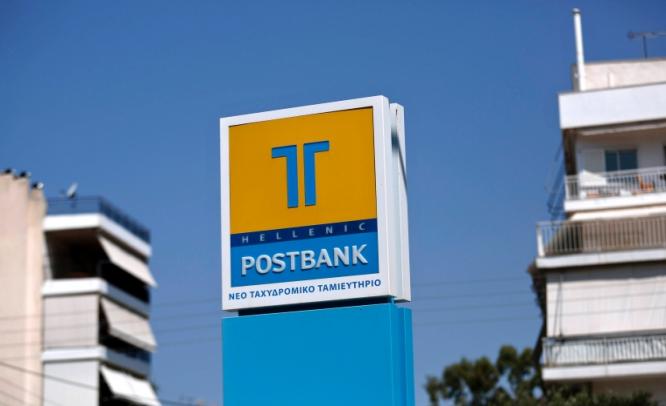The sale is the latest move in a consolidation of the banking sector that aims to form stronger, well capitalized banks to help the economy out of a six year slump.
July 16, 2013 : Greece’s bank rescue fund picked Eurobank to buy New Hellenic Postbank as part of consolidation in the sector and to meet a condition for the next instalment of the Greek bailout, demanded by Greece’s international creditors.
In a statement released to the media it said “The Hellenic Financial Stability Fund has completed the tender process for the sale of the New Hellenic Postbank and has decided to proceed with the sale to Eurobank. The HFSF and Eurobank will work together on a binding agreement on Monday”
Prime Minister Antonis Samaras is due to meet the head’s of Greece’s four “systemic” banks on Monday morning after the latest round of consolidation in the banking sector. The heads of National, Piraeus, Eurobank and Alpha will meet Samaras and Finance Minister Yannis Stournaras after Greek’s bank rescue fund had picked Eurobank to buy New Hellenic Post bank as part of consolidation in the sector and to satisfy the conditions imposed by the Troika for the release of more funds from the 240 billion Euros or $ 314 billion, rescue package. The sale is the latest move in a consolidation of the banking sector that aims to form stronger, well capitalized banks to help the economy out of a six year slump. The Hellenic Financial Stability Fund, the rescue vehicle setup to recapitalise Greece’s major lenders, said it aimed to sign a binding agreement with the Eurobank on Monday, the bank did not elaborate on the selloff.
In August, Greek banking regulators determined that state owned Hellenic Postbank was no longer viable after it sustained steep losses and split into “good” and “bad” parts. It is among the smallest of Greece’s major banks, with about a 6 percent of market share of deposits and 3 percent of loans. The rescue fund fully owned its assets. Greece, which is in the midst of a worst ever economic crisis had attempted unsuccessfully to sell state owned gas company DEPA as part of its privatization programme that underpins its 240 billion bailout from the Troika. Like other Greek lenders, Postbank was hit by writedowns on Greek bonds and loan impairments in the wake of a debt crisis and severe recession. Goldman Sachs was the fund’s advisor on the Postbank sale.
Earlier, authorities wound up Postbank in January after efforts to sell it failed. They stripped out bad debts from its portfolio and transferred less risky assets and deposits to a new entity called New Hellenic Postbank.
HFSF also said Eurobank had been picked up to acquire small lender Proton bank, and the binding agreement would be signed on Monday, the bank 1 billion Euros in deposits and 1.3 billion Euros in assets.
Athens has shown better performance on the banking front, in contrast to its slow moving agenda. Authorities have met deadlines to conditions posed by the Troika and recapitalize major banks and wind down lenders deemed non viable. In order to cover its funding gap (difference between assets and liabilities) the HFSF had pumped 4 billion Euros and a further 500 million to recapitalise it. The spruced up bank has assets of 13.7 billion Euros, deposits of 10.7 billion and a network of 200 branches.
The acquisition of Postbank improves Euro bank’s liquidity profile and its reprivatisation prospects, adding to doubts on whether a suspended merger with its peer, National Bank, will go ahead. A Eurobank executive whose identity was not revealed told the bank’s offer involved shares, not cash.

